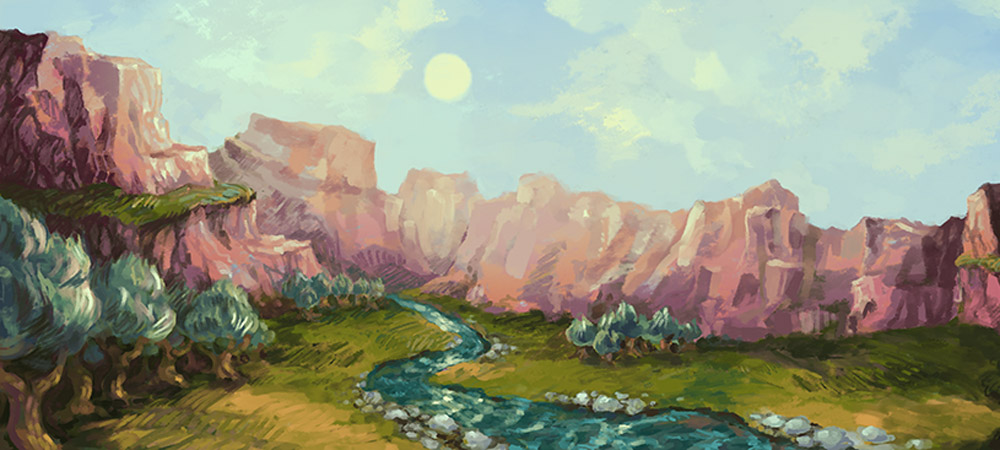Like Zelda, but pretentious
Anodyne is a cool little top-down dungeon crawler with an obvious problem: it isn’t Zelda.
Though I would normally feel like a jerk criticizing a small indie title for not stacking up to Nintendo’s legendary series, the game itself forces the comparison, lifting not just the basic gameplay elements of the classic 2D Zelda games, but also various art cues and enemy designs.

Anodyne (Windows [reviewed], Mac, Linux)
Developer: Sean Hogan and Jonathan Kittaka
Publisher: Analgesic Productions
Released: February 4, 2013
MSRP: $9.99
The primary difference is Anodyne’s dedication to minimalism. Whereas the Zelda games offer the player an inventory filled with various sub-weapons and tools, Anodyne’s protagonist Young carries only his trusty broom (and eventually a pair of jump boots). The plot is similarly sparse, leaving players to fight their way through the game’s oddly disturbing environments without any real explanation as to why, with the cryptic NPCs and their bizarre philosophical ramblings not helping to shake that sense of unease.
Luckily, Anodyne’s lacking complexity never seems enough to discourage one from exploring its unique world in search of cards (the game’s collectable of choice). Hidden in treasure chests scattered around the various areas and dungeons, these cards are the key to unlocking various gates and progressing through the game. Though I wish the importance of the cards had been stressed before forcing me to backtrack, Anodyne’s streamlined navigation makes it easy to zoom around in search of missed items.
The entire world is interconnected by a series of portals, the main portal hub helpfully informing players which areas still have cards to be searched out. Meanwhile, the sprawling dungeons are all helpfully tracked by an in-game map, showing which paths have yet to be followed. These are perhaps Anodyne’s strongest features, letting players enjoying explore this strange realm without worrying about getting lost.

However, while this scaled-down take on the Zelda formula leaves the thrill of exploration intact, the actual game mechanics are perhaps a bit too simplistic. The game’s puzzles are the worst offenders; without an inventory of tools to choose from, their solutions are easily narrowed down to something involving your broom, or using dust clumps to dismantle traps and block enemies. Boss battles suffer similarly from the lack of different items, not forcing players to exploit weak points using specific sub-weapons, but simply having them dodge attack patterns and get in some broom hits when possible.
Thing is, early in the adventure I was more than willing to overlook the lacking gameplay — I was more interested in learning what I could about the mysterious world. Anodyne offered me moments of beauty: climbing a massive windmill in the rain, scaling a sun-painted mountain. It also offered me moments of horror: killing a fisherman and jumping into the blood portal left behind; walking around a black-and-white village, unable to talk to the NPCs without stabbing them. Though as the cryptic statements began piling to the ceiling, I started to wonder when the game would start getting to the meaning behind these abstractions.

Unfortunately, as the credits roll, it becomes clear the developers have no interest in defining their world properly; whatever theories you might devise about the game’s hidden meaning given no real justification. It would be one thing if the clues were stronger, or if the dialogue was truly novel. Problem is, at times it feels more like an elaborate joke: bears talking about having sex, the final boss inviting you to go get a sandwich. Perhaps there’s some grand truth to be gleaned from the abstract philosophical ramblings, or perhaps the cute cat rambling away about the nature of life and death is exactly the kind of unnecessary pretentiousness it feels like.
Point is, Anodyne’s weaknesses would’ve been greatly justified by a solid narrative. Instead, we’re left with a semi-decent dungeon crawler featuring some rather attractive sprite art and great soundtrack. So while Anodyne’s minimalistic riff on Zelda is definitely unique enough to warrant a purchase, it unfortunately never comes close to inheriting the legacy of its father, too lost in its odd pretentiousness to ever arrive at the point.





Published: May 3, 2013 05:00 pm